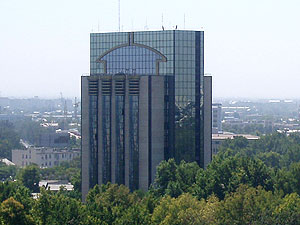The Central Bank decided to reschedule the meeting to review the interest rate to March 17 due to the risks of external economic environment and high uncertainty, the Bank said in a statement.
Reportedly, against this background, it is necessary to conduct additional analysis to assess changes in the economies of Uzbekistan’s trading partners and their impact on the Uzbek economy.
According to a government source, the government and the regulator are in no hurry to share forecasts and take action, since “the situation is changing almost every hour.”
Financier Otabek Bakirov also wrote that these days "the life of any analysis and forecast is reduced from months to weeks, from weeks to days."
“Worst-case scenarios become best-case scenarios, with no single model providing adequate answers to a rapidly changing reality. In this sense, it is in many ways correct that [the regulator] is in no hurry to make important decisions,” he said.
In his opinion, the fact that Uzbekistan is not in the same economic space with Russia is a big plus.
“If negative developments in Russia affect the economy of Kazakhstan and Kyrgyzstan the very next day, we have a few weeks to take action, prepare, make informed decisions to mitigate the situation,” he said.
Chairman of the Central Bank Mamarizo Nurmuratov in October 2021 explained how the rouble exchange rate affected the Uzbek economy. According to his forecasts, the volatility of the rouble affects the economy of Uzbekistan with a delay of one or two quarters.
In January, the board of the Central Bank left the interest rate at 14%. The Central Bank highlighted that the main factor in inflation last year was a significant increase in prices for food and fuel and energy products. “Inflationary processes, initially recognized as temporary, may put pressure on prices for a longer period of time,” the regulator said in a statement.












